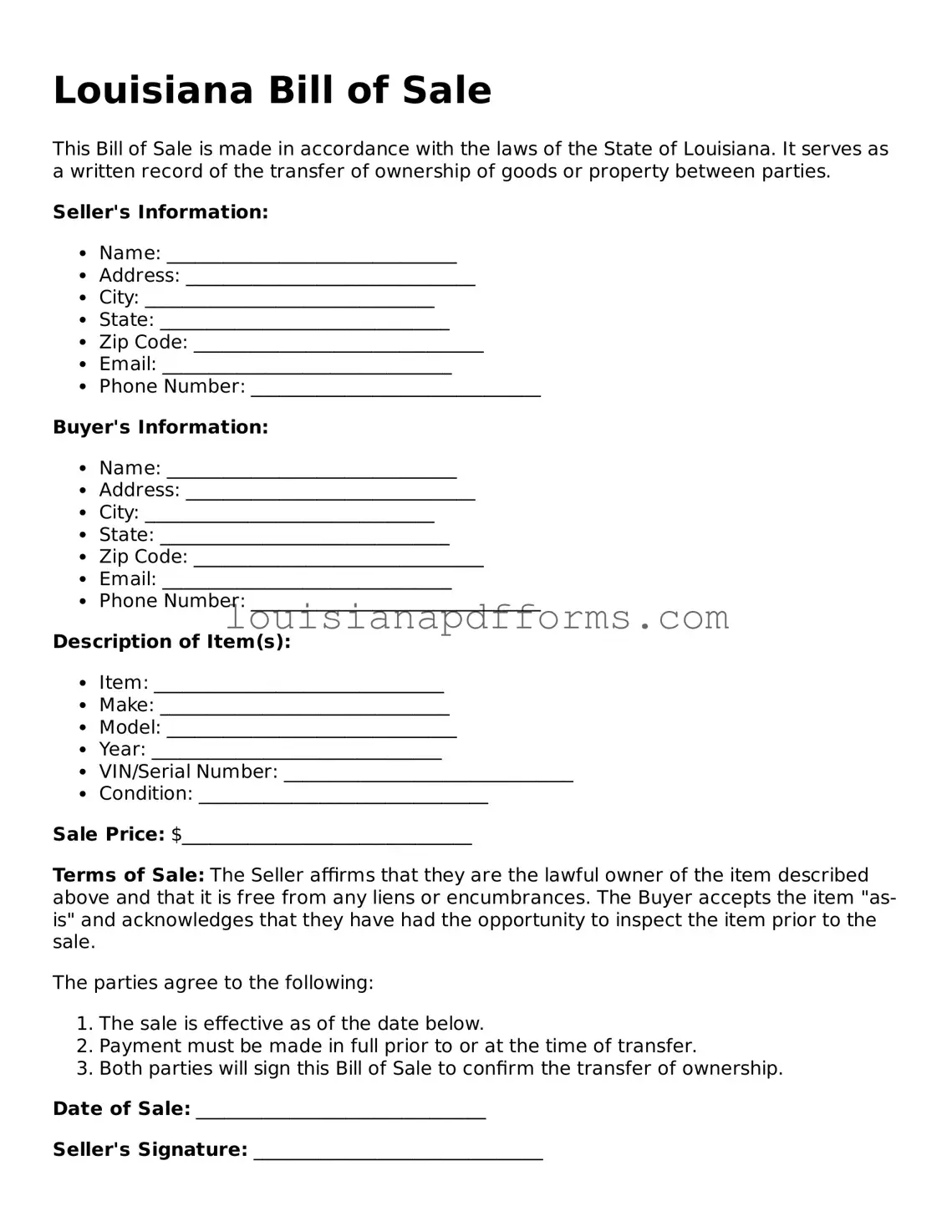Filling out the Louisiana Bill of Sale form can seem straightforward, but many individuals make common mistakes that can lead to complications down the line. One prevalent error is failing to include all necessary information about the buyer and seller. Both parties’ names, addresses, and contact information should be clearly stated. Omitting any of these details can create confusion and may lead to disputes in the future.
Another mistake often made is not accurately describing the item being sold. It is essential to provide a detailed description, including the make, model, year, and condition of the item. Vague descriptions can lead to misunderstandings about what was sold, which could result in legal issues later on.
Many people neglect to include the date of the transaction. This detail is crucial as it establishes when the sale took place, which can be important for tax purposes and for determining the timeline of ownership. Without a date, the Bill of Sale may lack validity.
In some cases, individuals forget to specify the sale price. The amount paid for the item should be clearly stated to avoid any ambiguity. A missing price can lead to complications, especially if the transaction is questioned by tax authorities.
Not signing the form is another common oversight. Both the buyer and seller must sign the Bill of Sale to validate the transaction. A signature serves as a confirmation that both parties agree to the terms outlined in the document. Without signatures, the form may not hold up in legal situations.
Some individuals use incorrect or outdated forms. It is vital to ensure that the correct version of the Louisiana Bill of Sale is being utilized. Using an outdated form can lead to issues with compliance and may not meet current legal requirements.
Another mistake is not having a witness or notary present during the signing of the document. While not always required, having a witness or notary can provide additional protection and credibility to the transaction. This step can help prevent disputes regarding the authenticity of the signatures.
Failing to keep a copy of the completed Bill of Sale is a significant error. Both the buyer and seller should retain a copy for their records. This document serves as proof of the transaction and can be vital if any questions arise in the future.
People sometimes overlook the importance of understanding the terms and conditions outlined in the Bill of Sale. It is essential to read through the entire document carefully before signing. Misunderstandings about warranties, liabilities, or other terms can lead to disputes later on.
Lastly, some individuals rush through the process without taking the time to review their entries for accuracy. Errors in spelling, numbers, or other critical information can lead to complications. Taking a moment to double-check the form can prevent many issues that may arise from simple mistakes.

